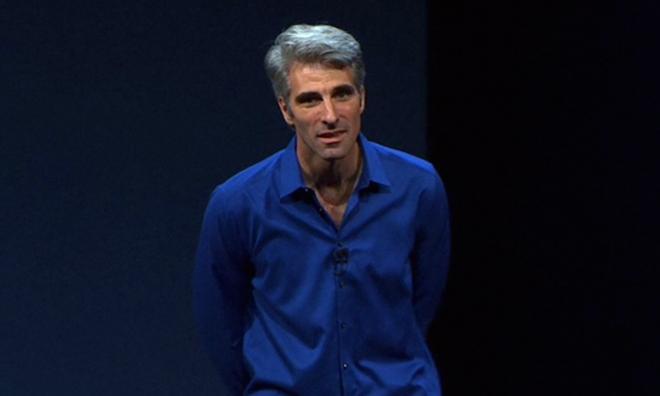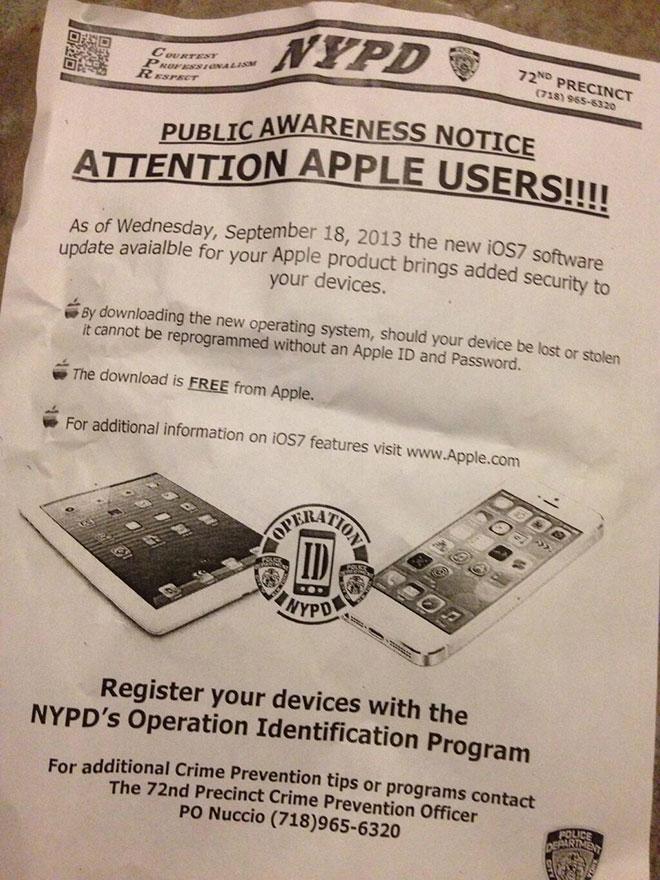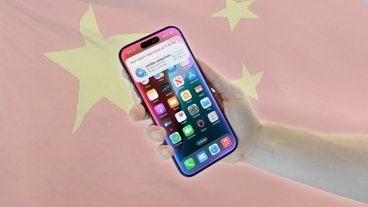Apple's head of software engineering Craig Federighi published an opinion in the Washington Post today that clarified the company's reasoning behind refusing to weaken its products to appease a very public demand from the FBI.
Apple's vice president of Software Engineering Craig Federighi
Federighi emphasized that the security Apple has designed into its platforms is a continuous effort "to stay one step ahead of criminal attackers who seek to pry into personal information and even co-opt devices to commit broader assaults that endanger us all."
He noted that in just the last year and a half, criminals have attacked retailers, banks and even the federal government, stealing "credit card information, Social Security numbers and fingerprint records of millions of people."
"The encryption technology built into today's iPhone represents the best data security available to consumers," Federighi wrote. "And cryptographic protections on the device don't just help prevent unauthorized access to your personal data — they're also a critical line of defense against criminals who seek to implant malware or spyware and to use the device of an unsuspecting person to gain access to a business, public utility or government agency.""That's why it's so disappointing that the FBI, Justice Department and others in law enforcement are pressing us to turn back the clock to a less-secure time and less-secure technologies" - Craig Federighi
Any weaknesses found must be addressed "to keep customers safe," he continued, before noting, "That's why it's so disappointing that the FBI, Justice Department and others in law enforcement are pressing us to turn back the clock to a less-secure time and less-secure technologies."
He added, "to get around Apple's safeguards, the FBI wants us to create a backdoor in the form of special software that bypasses passcode protections, intentionally creating a vulnerability that would let the government force its way into an iPhone. Once created, this software — which law enforcement has conceded it wants to apply to many iPhones — would become a weakness that hackers and criminals could use to wreak havoc on the privacy and personal safety of us all."
Federighi concluded, "Security is an endless race — one that you can lead but never decisively win. Yesterday's best defenses cannot fend off the attacks of today or tomorrow. Software innovations of the future will depend on the foundation of strong device security. We cannot afford to fall behind those who would exploit technology in order to cause chaos. To slow our pace, or reverse our progress, puts everyone at risk."
Law enforcement praised Apple's iOS Activation Lock
One issue Federighi didn't directly touch on is the fact that beginning in 2013, federal agencies and local law enforcement were praising Apple for its work in developing Activation Lock, a technology rooted in boot level OS security and device encryption that makes stolen phones difficult or impossible to reactivate without the user's credentials.
That advance in iOS security resulted in a dramatic drop in iPhone thefts and the related violent crime epidemic that had been erupting in association with iPhone muggings from San Francisco to New York City to London.
In 2014 and again last year, law enforcement groups pointed to significant drops in violent crime statistics directly related to the strong security employed in iOS Activation Lock— 25 percent in New York, and 40 percent in San Francisco.
Police in New York City were actively encouraging users to upgrade their iPhone software to take advantage of the increased security (below), which has been regularly enhanced with each major release since then.
Apple has stated that it plans to continue to enhance iOS security, a subject that may complicate some law enforcement efforts to obtain data associated with criminals, but which also protects far more victims from violent crime— and from identity theft and other digital attacks— in addition to device surveillance by extremist governments and terrorist groups.
 Daniel Eran Dilger
Daniel Eran Dilger








-m.jpg)






 Charles Martin
Charles Martin
 Christine McKee
Christine McKee
 Wesley Hilliard
Wesley Hilliard
 Malcolm Owen
Malcolm Owen
 Andrew Orr
Andrew Orr
 William Gallagher
William Gallagher
 Sponsored Content
Sponsored Content








22 Comments
A the very least, your phone's data should be secure unless the phone is physically disassembled.
The FBI has their head stuck in their own sandbox, and like any government agency, is trying its darnedest to little to no work for their mediocrity.
"In 2014 and again last year, law enforcement groups pointed to significant drops in violent crime statistics directly related to the strong security employed in iOS Activation Lock—25 percent in New York, and 40 percent in San Francisco. Police in New York City were actively encouraging users to upgrade their iPhone software to take advantage of the increased security (below), which has been regularly enhanced with each major release since then."
Manhattan District Attorney Cyrus Vance Jr. - and F.B.I. Director James Comey - are f**king liars and hypocrites.
Comey & Vance - go fk yourselves! You can't have your cake and eat it too. Do your fk'n jobs with the resources you have! Like what you had to do BEFORE smartphones! Your job descriptions haven't changed.
Three days ago, I posted a notice to friends about getting iOS 9.2 override while on a long walk. The audio shut off, checked the phone half expecting some series of notifications only to receive a notice the phone was inaccessible for the next minute. Hit the slider to unlock and received the Phone Interface with Russian language on top. Powered down the phone, rebooted and went on with my day. Thats the first ever phishing expedition I've experienced with iOS. I mention this in case you get it [I'm on Verizon] in the future. Also, because Craig is correct. It is a never ending moving target.